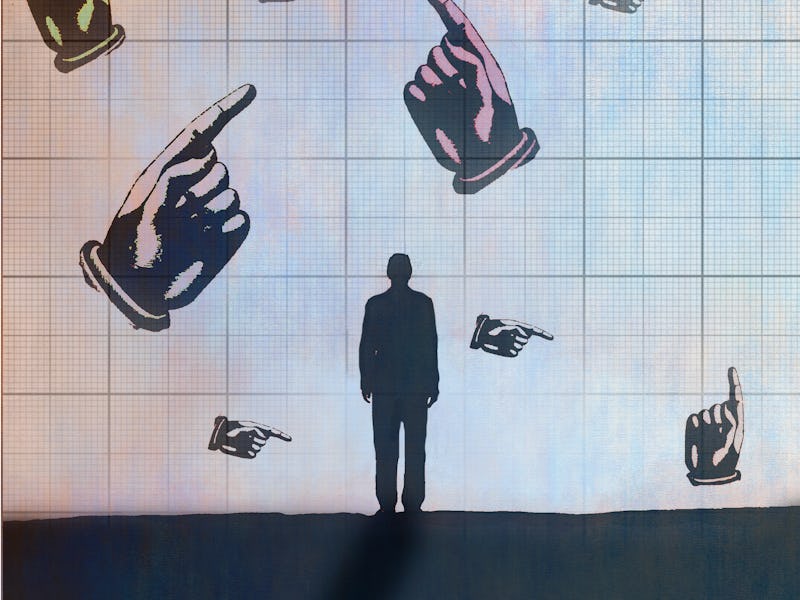Improving your decision-making skills comes down to these 5 factors
To help make better decisions, it’s worth understanding what leads us to the choices we make.

Daily life brings with it a series of decisions. Most are innocuous — what to wear, what to eat for lunch, how to spend your break — while some carry more weight, such as when to tackle difficult tasks. Occasionally, we’re faced with decisions that could carry consequences and may need special consideration.
To help make better decisions, it’s worth understanding what factors lead us to the choices we make. According to published research, there are several factors that contribute to our decision making.
5. Past decisions
University of Pennsylvania researchers found that our past judgments influence our decisions so that we remain consistent. On top of that, people’s memories tend to adjust to make a new experience consistent with preceding decisions.
“This indicates that humans subconsciously condition themselves to be self-consistent in how they remember the past,” said study co-author Long Luu.
The researchers didn’t expand on the consequences of their finding, but it’s worth keeping this bias for past judgments in mind when we are faced with decisions.
4. Chronic stress
When faced with two options that carry both good and bad elements, such as deciding between a job with a high salary but long hours and a lower-paying job that allows for more leisure time, whether the individual is under chronic stress could push them toward the high-risk, high-payoff option.
MIT neuroscientists discovered this phenomenon after conducting a study on mice. After exposing the animals to stress, they tended to seek highly concentrated chocolate milk under stressful bright light rather than weaker chocolate milk under dim light.
“Stress is ubiquitous for both humans and animals, and its effects on brain and behavior are of central importance to the understanding of both normal function and neuropsychiatric disease,” wrote Amy Arnsten, a Yale University School of Medicine professor of neuroscience and psychology, in a commentary accompanying the research. “Impulsivity is likely to worsen patterns of behavior that produce the stress in the first place, inducing a vicious cycle.”
3. Our knowledge of a subject
Our previous knowledge of a subject clouds our decision making when presented with new information, according to research out of Stevens Institute of Technology.
“In situations where people do not have background knowledge, they become more confident with the new information and make better decisions,” said lead researcher Samantha Kleinberg. “So there’s a big difference in how we interpret the information we are given and how it affects our decision making when it relates to things we already know vs. when it’s in a new or unfamiliar setting.”
The finding is based on an experiment in which 4,000 participants answered a series of questions based on topics in which they had some knowledge and ones that they had none, including fictional scenarios. Participants tended to do better with the latter scenarios. Kleinberg said this means that to help people make better decisions, information should be tailored based on their previous knowledge.
2. The number of choices
Analysis paralysis occurs when individuals overthink a decision and can’t make a choice. It could happen when there’s too much information or too many choices. Another issue with too many choices is that they could actually affect the decisions we make.
Across two experiments, University of Basel researchers tasked 139 participants to choose between three different foods that changed over multiple rounds. They chose three options because of the phenomena in which “people can behave in many contradictory and inconsistent ways when multiple related options are available, ” according to a release about the findings. “For example, someone who initially selects chicken over pasta may change their preference when another vegetarian option such as salad is added — and may then suddenly find the pasta more appealing.”
To eliminate this issue, the psychologists said to restrict choices down to two as soon as possible. They found that the easier it was for people to discount the worst option, the more quickly they were able to decide between the two remaining options.
1. How hungry you are
Research out of the University of Dundee can be boiled down to a few words: Don’t decide when hungry. Psychologists found that “hunger significantly altered people’s decision making, making them impatient and more likely to settle for a small reward that arrives sooner than a larger one promised at a later date,” according to a press release.
You may have experienced this play out when filling up on the free bread at a restaurant while waiting for your main course to come out. But the research indicates it plays out when it comes to more important decisions.
“This work fits into a larger effort in psychology and behavioral economics to map the factors that influence our decision making,” said study author Dr. Benjamin Vincent. “This potentially empowers people as they may foresee and mitigate the effects of hunger, for example, that might bias their decision making away from their long-term goals.”